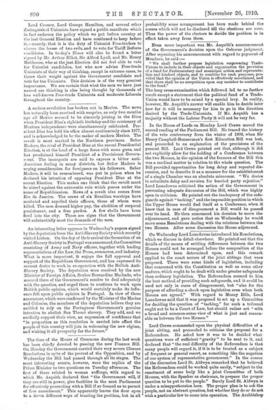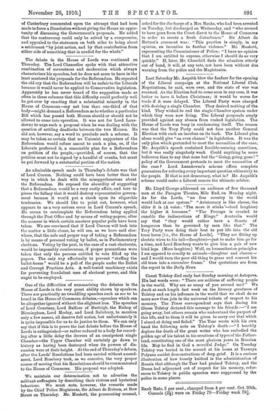Lord Crewe commented upon the physical difficulties of a joint
sitting, and proceeded to criticise the proposal for a Referendum. He asked how it was to be decided what questions were of sufficient "gravity" to be sent to it, and declared that "the real difficulty of the Referendum is that many people will regard it, if it is to be treated as a subject of frequent Or general resort, as something like the negation of our system of representative government." In the course of the discussion Lord St. Aldwyn remarked that he believed the Referendum could be worked quite easily, "subject to the enactment of some body like a joint Committee of both Houses, with the Speaker as chairman, to prepare the proper question to be put to the people." Surely Lord St. Aldwyn is under a misapprehension here. The proper plan is to ask the people, not an abstract question, but whether they do or do not wish a particular law to come into operation. The Archbishop
of Canterbury commented upon the attempt that had been made to force a Dissolution without giving the House an oppor- tunity of discussing the Government's proposals. He added that the controversy could only be solved by a compromise, and appealed to the statesmen on both sides to bring about a settlement "by joint action, and by that contribution from either side of something that is needed for the whole."



















































 Previous page
Previous page